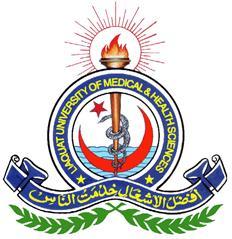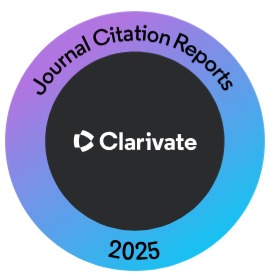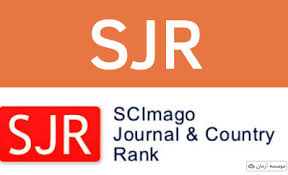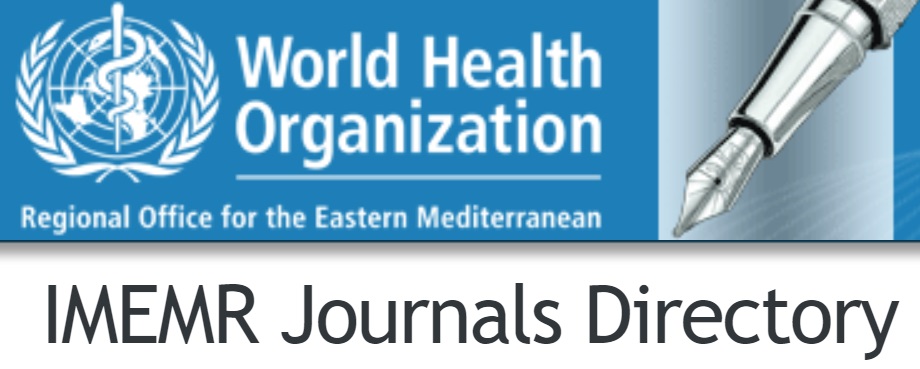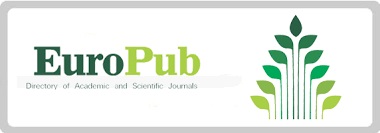Knowledge, Attitude, and Practice of Antibiotic Use among Medical Students in the College of Medicine, National University, Oman
Keywords:
Antibiotics, attitude , knowledge, medical students, Oman, practice, resistanceAbstract
OBJECTIVE: To assess the knowledge, attitude, and practice toward antibiotic use among medical students at the College of Medicine, Oman.
METHODOLOGY: A cross-sectional study was conducted at the College of Medicine, where both pre-medical and medical students participated in data collection from November 2023 to January 2024. A structured pretested questionnaire was used to collect data from all students. SPSS version 20 was used for data analysis. Independent variables were presented as frequencies and percentages, while the total knowledge score was presented as the mean and standard deviation. The mean total knowledge score was analyzed to independent variables using a t-test.
RESULTS: A total of 472 students participated in this study, with most (74.2%) having no prior training on antibiotic use. Students with prior training on antibiotic use had better knowledge (81.5±18.4) than those without it (62.1±25). Most students (87.7%) recognised that improper antibiotic use could lead to antibiotic resistance in the future, and the mean total knowledge score was 67.14 ± 24.9. A high percentage of students reported stopping the antibiotics once symptoms subsided (56.6%).
CONCLUSION: Medical students' knowledge of proper antibiotic use was generally good. Knowledge of students with previous training courses and those from clinical years was higher. There was a very significant association between poor knowledge and bad antibiotic practices, like using antibiotics for self-medication and stopping antibiotics when symptoms subside.
References
Organization WH. Global antimicrobial resistance and use surveillance system (?GLASS)?. Genève, Switzerland: World Health Organization; 2022.
Organization WH. World Antimicrobial Awareness Week. World Health Organization. [cited 2024 Jun 3]. Available from: https://www.who.int/campaigns/world-antimicrobial-awareness-week/ 2022.
Global burden of bacterial antimicrobial resistance in 2019: a systematic analysis. Lancet. 2022; 399: 629–55. doi: 10.1016/S0140-6736(21)02724-0.
Jorak A, Keihanian F, Saeidinia A, Anwar M, Sarfraz M. A cross-sectional study on knowledge, attitude and practice of medical students toward antibiotic resistance and its prescription, Iran. Adv Environ Biol. 2014; 8: 675–81.
Jairoun A, Hassan N, Ali A, Jairoun O, Shahwan M. Knowledge, attitude and practice of antibiotic use among university students: a cross-sectional study in UAE. BMC Public Health. 2019; 19(1): 518. doi: 10.1186/s12889-019-6878-y.
Gupta MK, Vohra C, Raghav P. Assessment of knowledge, attitudes, and practices about antibiotic resistance among medical students in India. J Family Med Prim Care. 2019; 8(9): 2864–9. doi: 10.4103/jfmpc.jfmpc_504_19.
Hu Y, Wang X, Tucker JD, Little P, Moore M, Fukuda K et al. Knowledge, attitude, and practice with respect to antibiotic use among Chinese medical students: A multicentre cross-sectional study. Int J Environ Res Public Health. 2018; 15(6): 1165. doi: 10.3390/ijerph15061165.
Soomro S, Alshammari HO, Alabbas YA. Awareness and knowledge about antibiotic use and resistance among students of Northern Border University Saudi Arabia. J Trop Dis. 2017; 05: 5. doi: 10.4172/2329-891X.1000247.
Ambusaidi A, Taylor N, Quinn F, Rizk N, Taylor S. Omani senior secondary school student's knowledge of and attitudes to antibiotic resistance. PLoS One. 2022; 17(2): e0264500. doi: 10.1371/journal.pone.0264500.
Jose J, Jimmy B, Alsabahi AGMS, Al Sabei GA. A study assessing public knowledge, belief and behavior of antibiotic use in an Omani population. Oman Med J. 2013; 28(5): 324-30. doi: 10.5001/omj.2013.95.
Gilbert GL. Knowing when to stop antibiotic therapy. Med J Aust. 2015; 202(11): 571. doi: 10.5694/mja15.00249.
Higuita-Gutiérrez LF, Roncancio Villamil GE, Jiménez Quiceno JN. Knowledge, attitude, and practice regarding antibiotic use and resistance among medical students in Colombia: a cross-sectional descriptive study. BMC Public Health. 2020; 20(1): 1861. doi: 10.1186/s12889-020-09971-0.
Microbiology & immunology. College of Medicine. 2021 [cited 2024 Jun 3]. Available from: https://nu.edu.om/medicine/microbiology-immunology/.
Elmahi OKO, Musa RAE, Shareef AAH, Omer MEA, Elmahi MAM, Altamih RAA et al. Perception and practice of self-medication with antibiotics among medical students in Sudanese universities: A cross-sectional study. PLoS One. 2022; 17(1): e0263067. doi: 10.1371/journal.pone.0263067.
Williams A, Crawford K. Self-medication practices among undergraduate nursing and midwifery students in Australia: a cross-sectional study. Contemp Nurse. 2016; 52(4): 410-20. doi: 10.1080/10376178.2016.1197782.
Downloads
Published
How to Cite
Issue
Section
License
Copyright (c) 2025 Journal of Liaquat University of Medical & Health Sciences

This work is licensed under a Creative Commons Attribution-NonCommercial-ShareAlike 4.0 International License.
Submission of a manuscript to the journal implies that all authors have read and agreed to the content of the undertaking form or the Terms and Conditions.
When an article is accepted for publication, the author(s) retain the copyright and are required to grant the publisher the right of first publication and other non-exclusive publishing rights to JLUMHS.
Articles published in the Journal of Liaquat University of Medical & health sciences are open access articles under a Creative Commons Attribution-Noncommercial - Share Alike 4.0 License. This license permits use, distribution and reproduction in any medium; provided the original work is properly cited and initial publication in this journal. This is in accordance with the BOAI definition of open access. In addition to that users are allowed to remix, tweak and build upon the work non-commercially as long as appropriate credit is given and the new creations are licensed under the identical terms. Or, in certain cases it can be stated that all articles and content there in are published under creative commons license unless stated otherwise.


